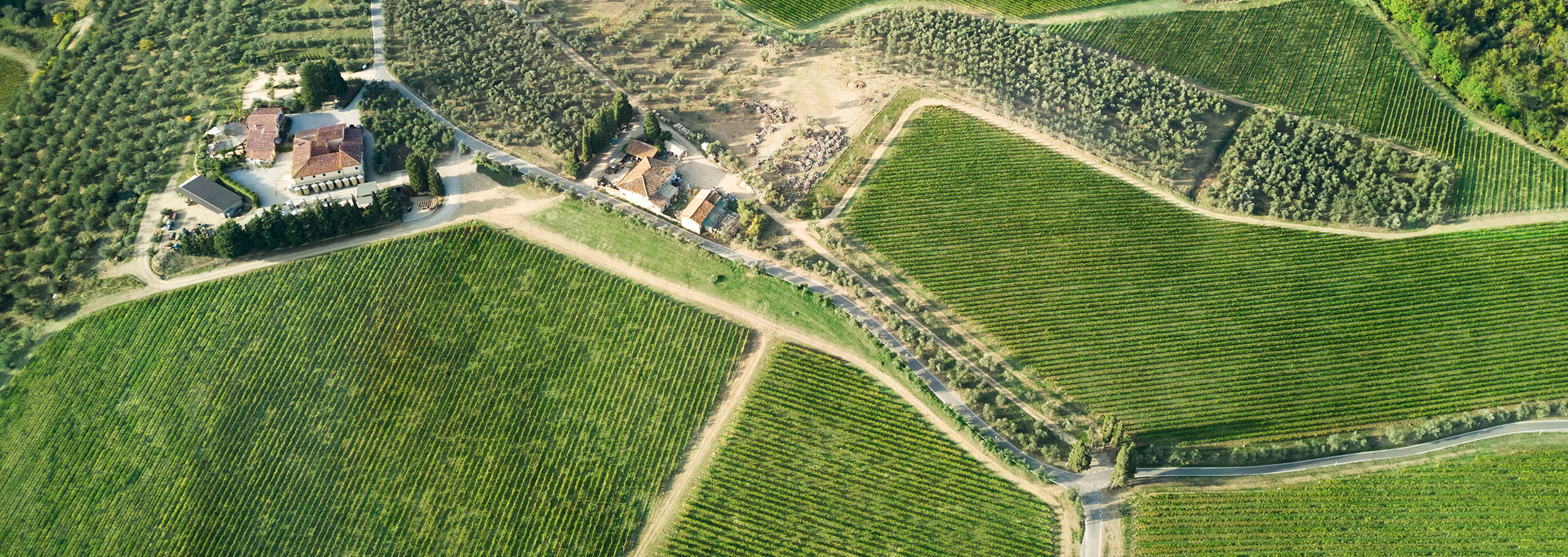
Tenuta Collazzi is an estate located in Tuscany, just outside Florence. Both the vineyards and the winery embody a balance between traditional Tuscan winemaking principles and modern technological innovations. The estate’s core mission is to produce premium-quality wines, shaped by the region’s natural conditions, carefully selected grape varieties, and meticulous winemaking processes.
The Revival of a Historic Estate
The story of Tenuta Collazzi began in 1933, when the estate was acquired by the Marchi family. Although the region’s winemaking heritage dates back to the Renaissance, the modern winery as we know it today was shaped through recent decades of targeted redevelopment. The modernization process has always been guided by the values of quality, sustainability, and a commitment to regional authenticity.
The estate underwent a full-scale restructuring of its viticultural and winemaking operations, with the goal of producing wines that remain true to their origin yet are internationally competitive. Every step—from vineyard management to winemaking—is carried out with a conscious, controlled approach that respects both local characteristics and state-of-the-art practices.
Terroir and Site Characteristics
Compared to other parts of the region, Collazzi's microclimate is warmer and drier, allowing for optimal grape ripening. The southwest-facing hillsides form a natural amphitheater around the vineyards, providing excellent sun exposure and consistent ventilation.
Out of the estate’s 400 hectares, around 25 hectares are planted with vines, all low-yielding and high in concentration. The main grape varieties include Sangiovese, Merlot, and Cabernet Sauvignon, used in varying proportions depending on the vintage and the quality of the harvest. 


Blending Tradition with Technology
The winemaking philosophy at Tenuta Collazzi is based on the harmonious integration of traditional Tuscan values with modern technology. The winery utilizes cutting-edge equipment during harvest and vinification, enabling precise and gentle processing. Each grape variety is vinified separately and in small batches, allowing winemakers full control over every detail.
During aging, the wines mature in French oak barrels, developing their final character while preserving the unique aromatic profile, structure, and balance of the terroir. The ultimate goal is for every wine to faithfully reflect its place of origin.
Hospitality and Gastronomy
The estate is also home to Locanda Collazzi, a restaurant that plays a key role in the estate’s approach to hospitality and gastronomy. The terrace offers stunning views of the vineyards and olive groves, with panoramic sights over Florence.
Led by Chef Angela Tucci, the kitchen focuses on seasonal, locally sourced ingredients to create authentic Tuscan cuisine. The carefully curated wine list is centered around the estate’s own wines, ensuring a dining experience that mirrors the winery’s dedication to quality and regional identity.



Sustainable Farming
Sustainability is a priority at Tenuta Collazzi. Beyond winemaking, the estate includes 140 hectares of olive groves that produce high-quality extra virgin olive oil, and an on-site apiary that yields organic honey. These agricultural branches underscore the estate’s long-term commitment to biodiversity, ecological balance, and sustainable production.
Conclusion
Tenuta Collazzi is more than a winery—it is a place where natural conditions, viticultural expertise, and conscious agricultural practices come together in harmony. Operated by the Marchi family, the estate produces wines that are not only of exceptional quality but are also part of a broader agricultural and culinary vision deeply rooted in the cultural landscape of Tuscany.
Collazzi wines are not merely products, they convey a philosophy where quality, origin, and dedication are expressed in every bottle.
The images featured in this article are sourced from the following websites: https://www.collazzi.it/it/tenuta/ .
